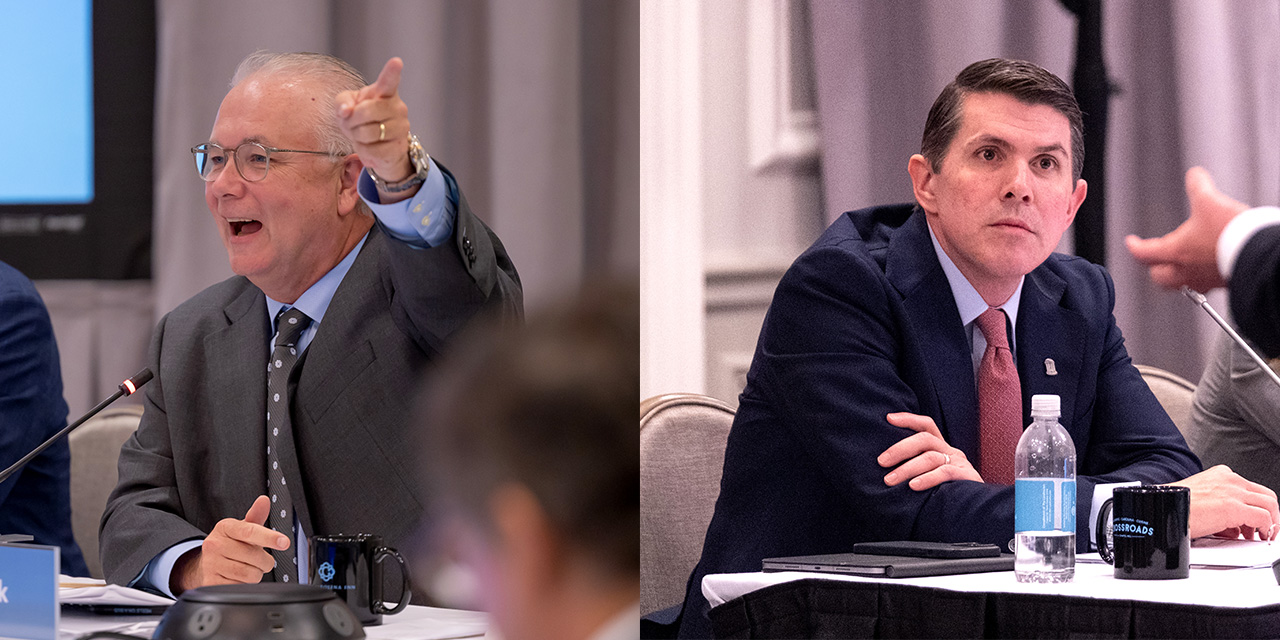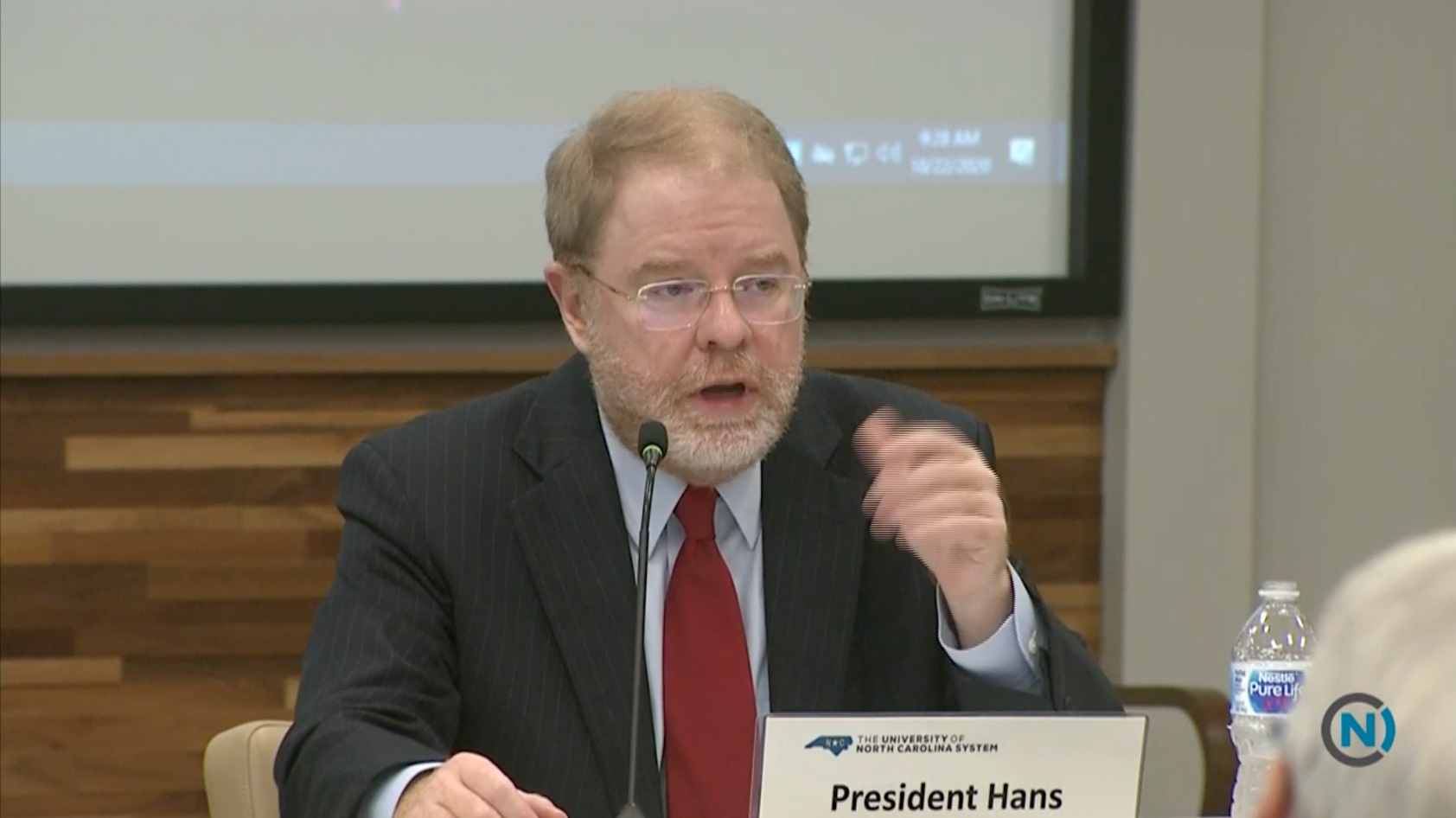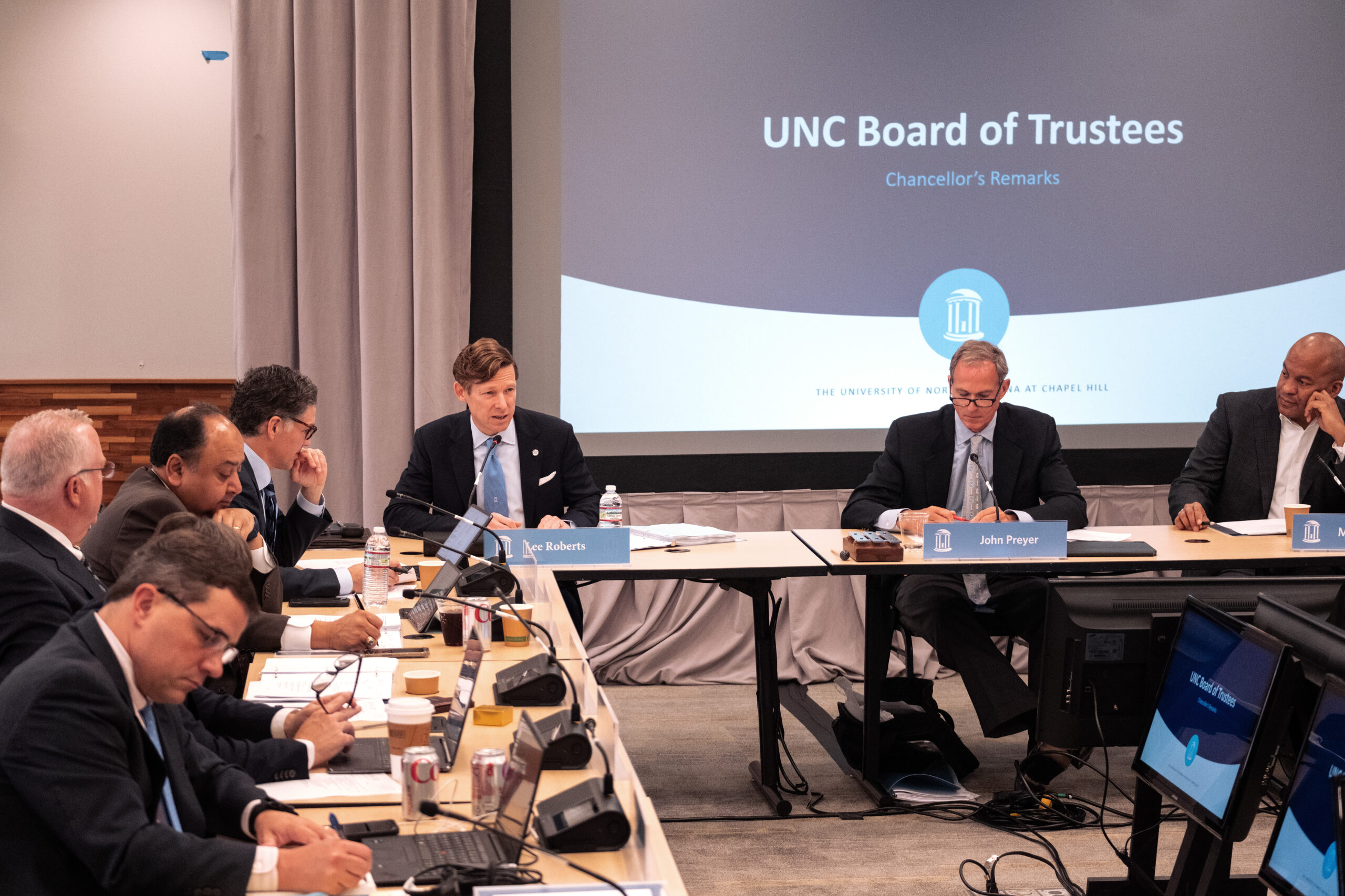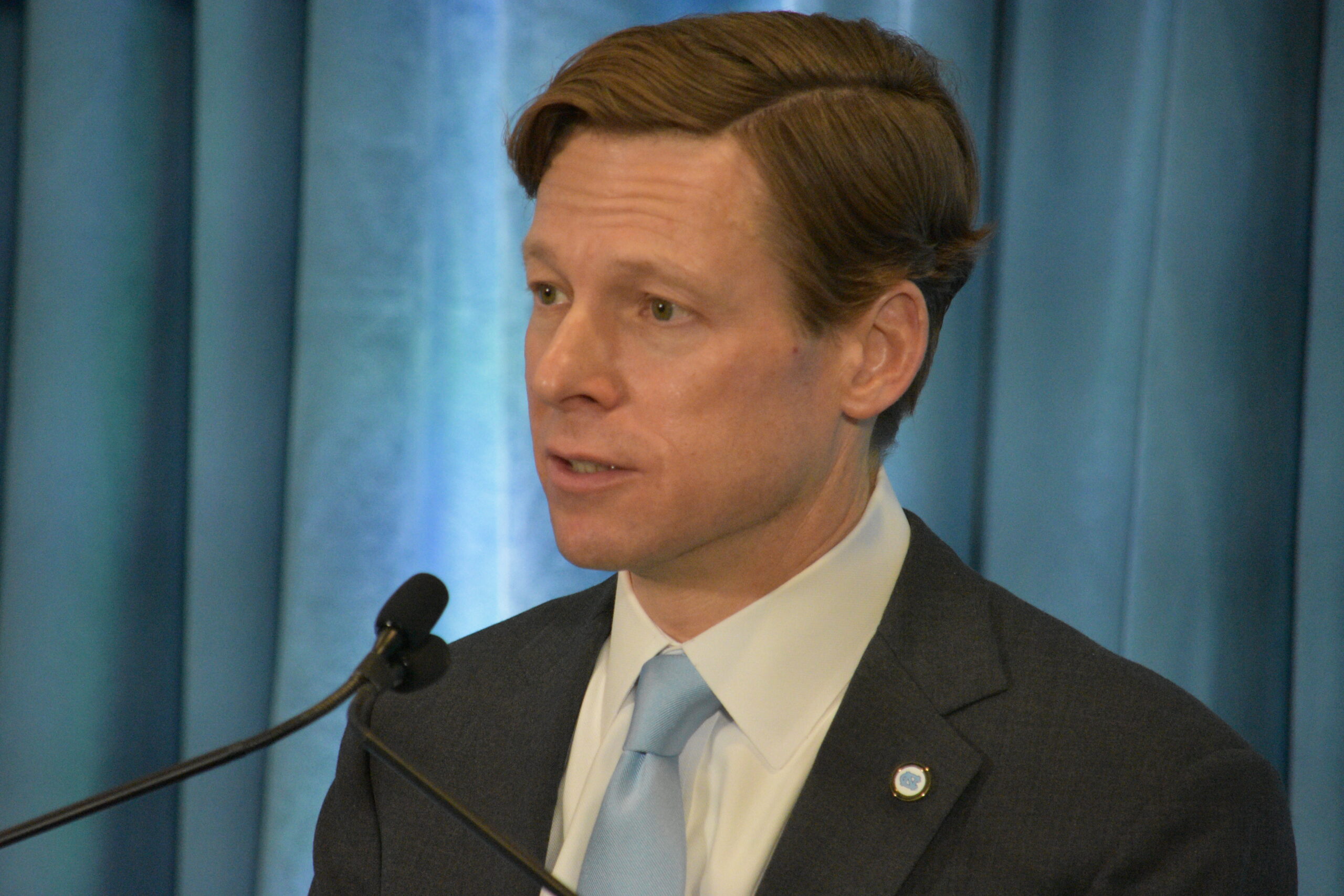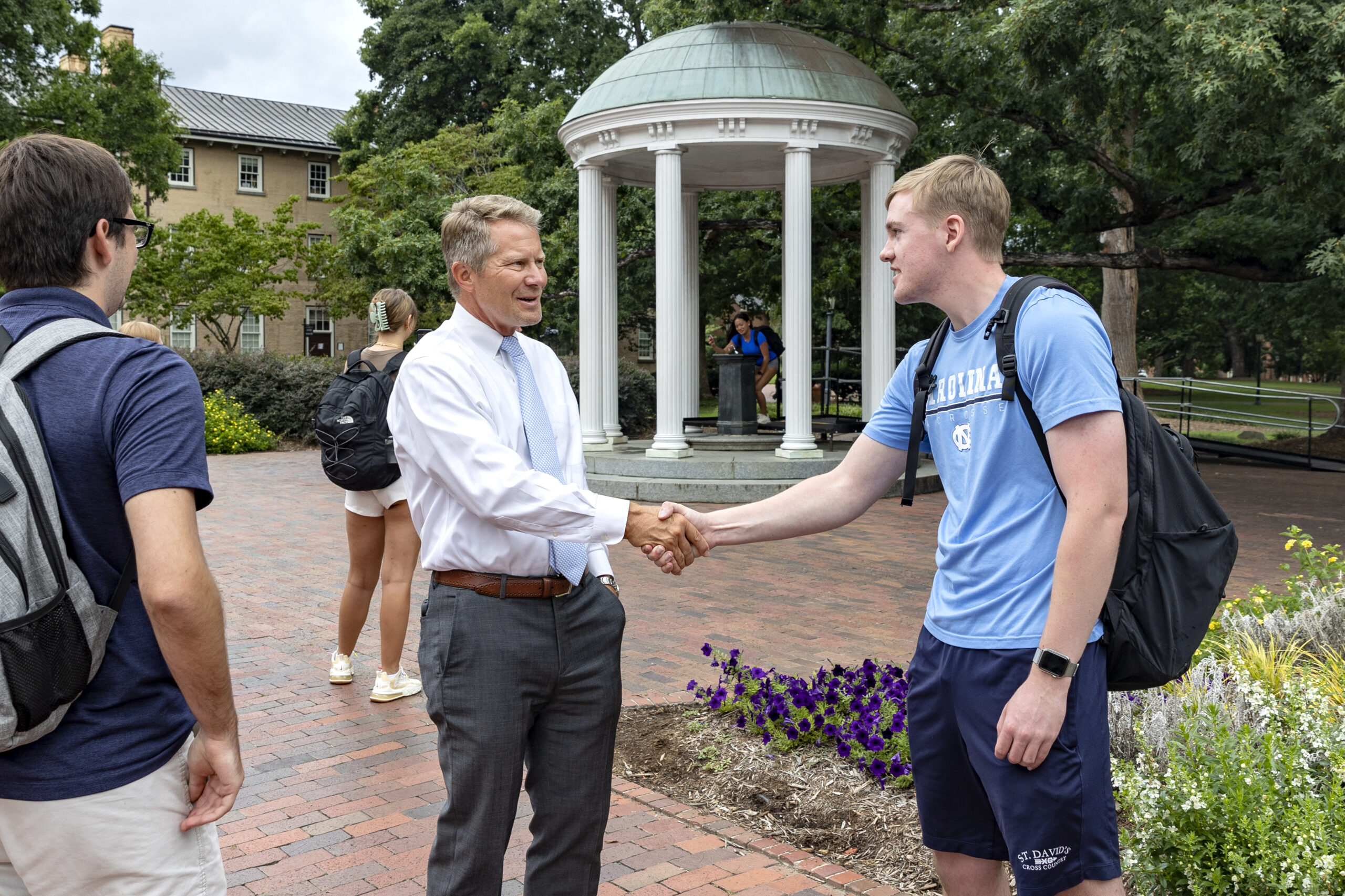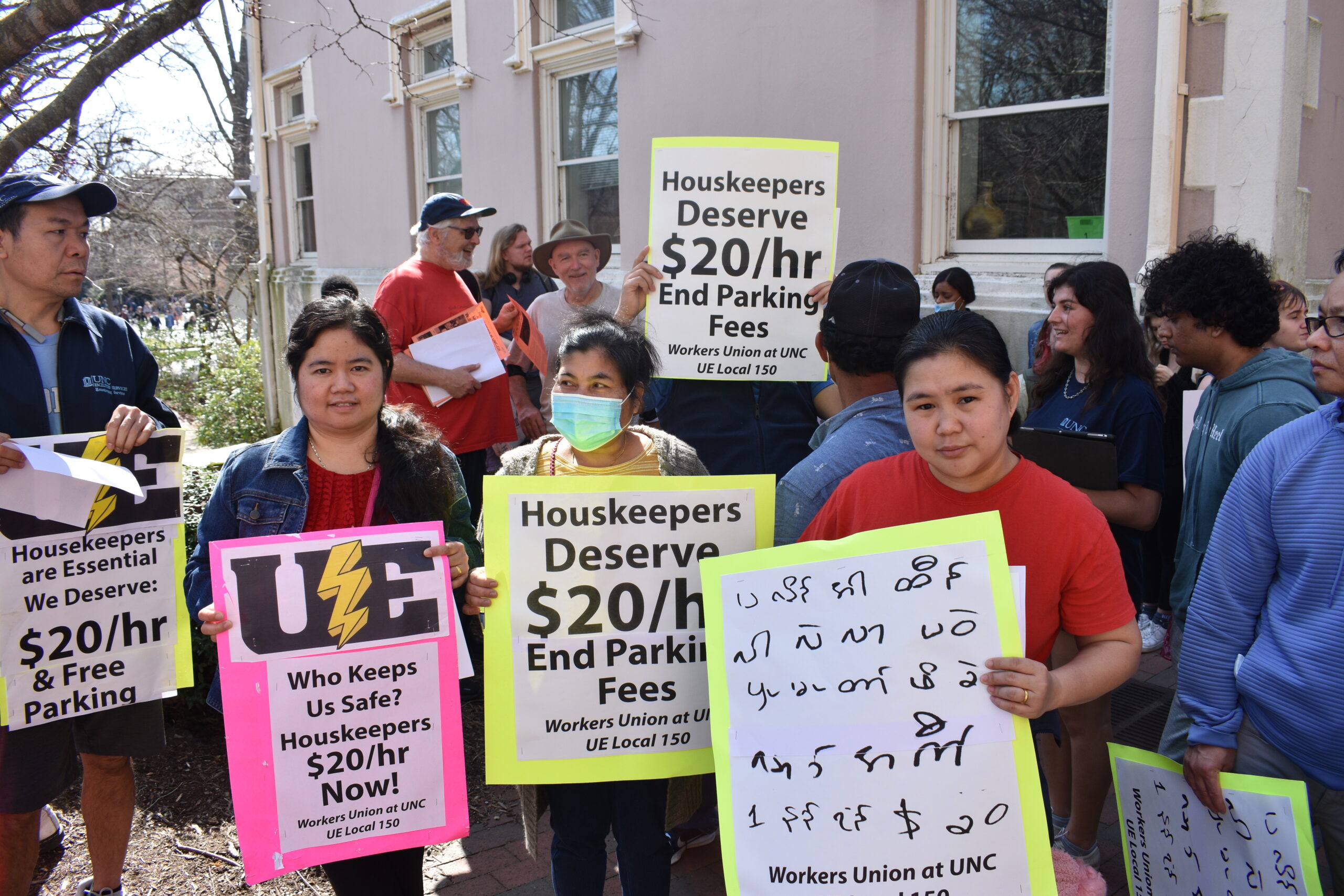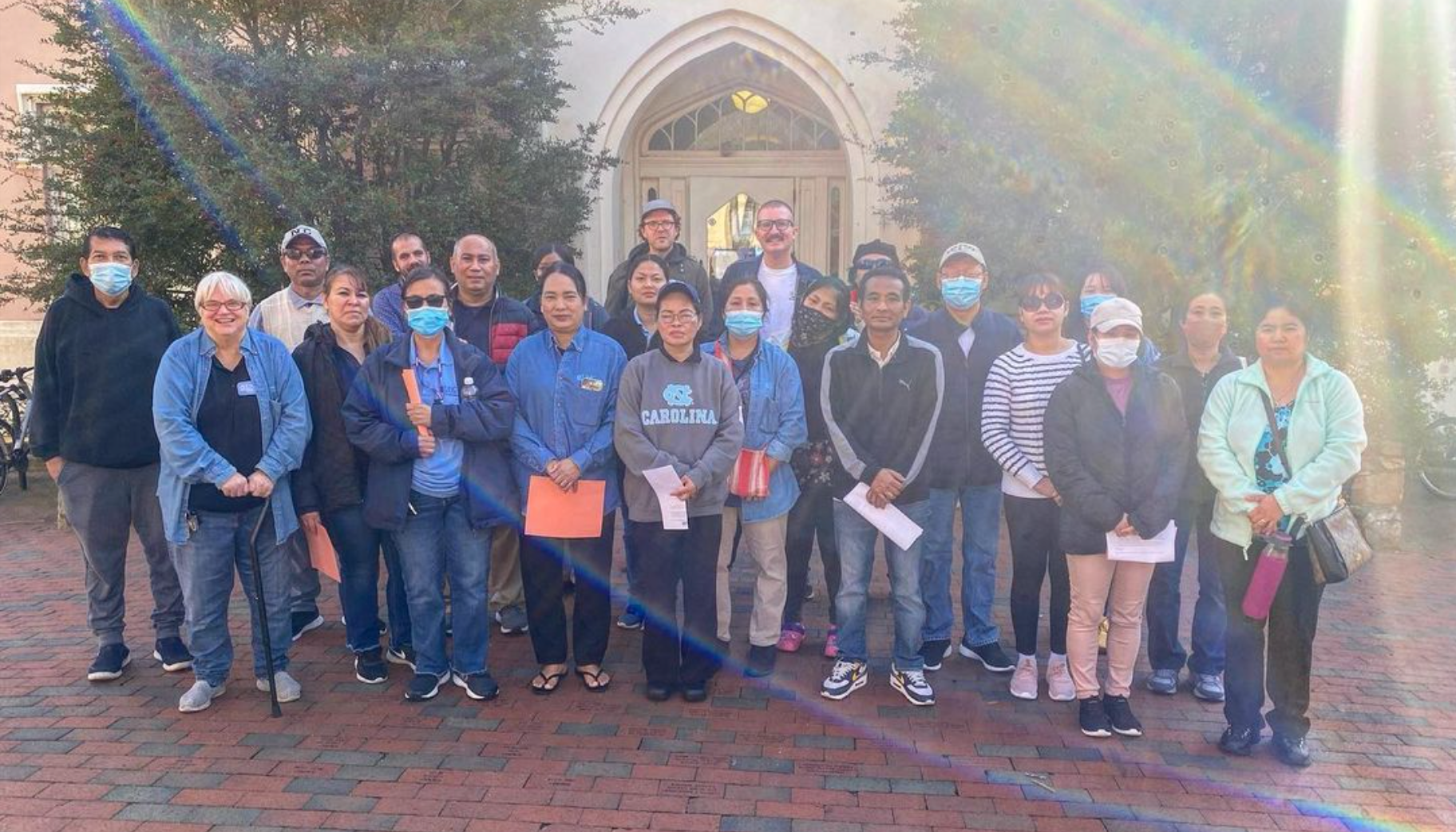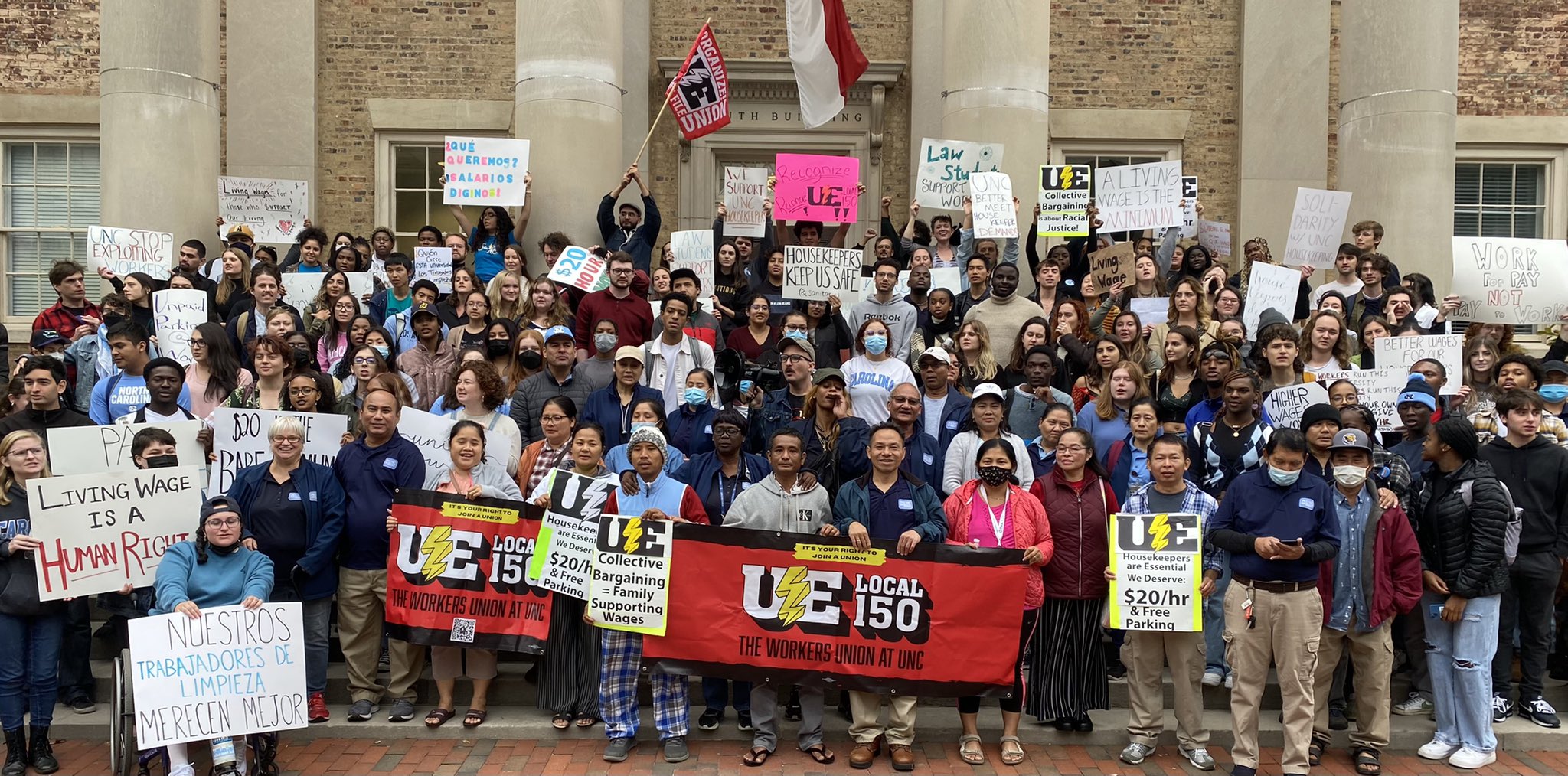Tom Ross’ tenure as the President of the UNC System officially came to a close on Monday.
The UNC Board of Governors announced in January 2015 that Ross would be removed from that position. That was the start of an oft-criticized 12 months for the board as it elected former U.S. Secretary of Education under George W. Bush Margaret Spellings to succeed Ross.
Fourth District North Carolina Congressman David Price spoke on the House floor on Thursday thanking Ross for his years of service. Price also criticized the decision to remove Ross as president.
I cannot fail to note that Tom is leaving the presidency of UNC prematurely. The Board of Governors last year made an unexpected, unexplained decision to request his resignation, while acknowledging that his stewardship had been exemplary. This leaves little doubt that the decision was based on the fact that Tom does not share Board’s partisan loyalties. This was not only shabby treatment of an outstanding public servant; it also set a dangerous precedent for a university system that for most of its history has been free of this sort of political manipulation.
Tom has handled this difficult situation with characteristic dignity and grace. His final contribution as president may be one of his most important: to help us move beyond this episode in a way that avoids recrimination, protects the university’s integrity, and builds on the many achievements of the past five years.
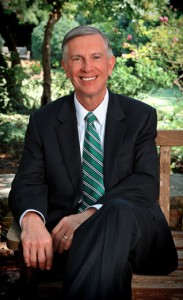
Tom Ross
Price spoke against the firing of Ross the day the decision was announced as well.
Price said during his remarks on the House floor that, “I have long admired Tom’s dedication to the university, and I am grateful for his service to our state.”
Price praised Ross for his leadership during “economic adversity” while “protecting (the university system’s) mission and securing its financial footing.”
Ross has a position at the UNC School of Government following a leave to pursue research.
Junius Gonzales has been named interim president until Spellings will take over as president in March.
Listen in to WCHL next week as Ross speaks with WCHL’s Blake Hodge.
Read the full comments from Congressman Price below:
Mr. Speaker, I rise today to honor a good friend and a devoted public servant, Tom Ross, who retired this month as President of the University of North Carolina system.
My wife Lisa and I have known Tom and his wife Susan for many years. His son Tommy served in my office, making a major contribution to the development of the House Democracy Partnership. I have long admired Tom’s dedication to the university, and I am very grateful for his service to our state.
A graduate of the UNC-Chapel Hill law school, Tom answered the call to serve as the UNC system’s President in 2011, in the midst of some of the greatest financial challenges that the university has faced in its history. UNC not only overcame these challenges; it has thrived thanks to Tom’s perseverance and strategic vision.
During his time at UNC, Tom made it easier to transfer from North Carolina community colleges to the four-year UNC institutions, expanding nontraditional students’ access to higher education. He has focused effectively on the access of active-duty military and veterans to the system and on enhancing their chances to succeed. He has carefully overseen the selection of 11 new university chancellors, guaranteeing another generation of exceptional leadership for the system’s 16 constituent universities.
Perhaps most importantly, Tom has led the university through economic adversity, protecting its mission and securing its financial footing. Compared to the beginning of Tom’s tenure, UNC system graduation rates have risen 18 percent while spending per degree has dropped 15 percent – remarkable achievements that reflect Tom’s leadership.
Tom’s life has been dedicated to public service. He came to UNC from Davidson College, his alma mater and one of the nation’s leading liberal arts colleges, where he served as President from 2007 to 2011. At Davidson, he implemented the Davidson Trust, a new initiative designed to fully eliminate student debt through grants and student employment. This innovative program has helped ensure that Davidson graduates do not face a financial burden as they begin their careers. He also oversaw a period of exceptional growth at Davidson, in part inspired by the on-campus career of Stephen Curry, who has gone on to become the NBA MVP and a global superstar. I suppose it’s true that success begets success.
Before his tenure at Davidson, Tom was President of the Z. Smith Reynolds Foundation, which provides tens of millions of dollars annually in grants to organizations devoted to economic empowerment. Tom also spent 17 years as a judge on North Carolina’s Superior Court, directed the state Administrative Office of the Courts, and led the North Carolina Sentencing and Policy Advisory Committee, where he oversaw the development and implementation of new sentencing guidelines for non-violent offenders.
I cannot fail to note that Tom is leaving the presidency of UNC prematurely. The Board of Governors last year made an unexpected, unexplained decision to request his resignation, while acknowledging that his stewardship had been exemplary. This leaves little doubt that the decision was based on the fact that Tom does not share Board’s partisan loyalties. This was not only shabby treatment of an outstanding public servant; it also set a dangerous precedent for a university system that for most of its history has been free of this sort of political manipulation.
Tom has handled this difficult situation with characteristic dignity and grace. His final contribution as president may be one of his most important: to help us move beyond this episode in a way that avoids recrimination, protects the university’s integrity, and builds on the many achievements of the past five years.
Lisa and I wish Tom well as he transitions to teaching and prepares for future endeavors. With Susan’s unfailing support, he has made lasting contributions to our state’s judicial system, nonprofit sector, and private and public higher education. He leaves our University stronger in important ways, despite the difficult economic and political environment in which he was called to lead. And he still has much to give. I am pleased to join thousands of North Carolinians in thanking him for his tireless service and in anticipating his contributions yet to come.


